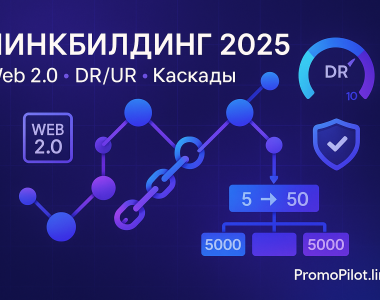Author: Oleksandr Gryn, expert in IT infrastructure and corporate server solutions
The content of the article
Introduction: the server as the heart of modern business
In the digital age, any business — from a small online store to an international corporation — works thanks to data. Storing this data, quick access to it, and security are key factors. And here the question arises: how to organize a reliable IT infrastructure?
One of the most effective ways is server rental. This is a service when a company does not buy its own equipment, but rents a physical or virtual server in a data center. This approach saves resources, reduces risks and allows you to quickly scale.
What is server rental?
Server rental is the use of computing power based on equipment located in a professional data center. It can be:
-
Virtual server (VPS/VDS) — a part of a physical server divided between several users.
-
Dedicated server — a completely separate physical server for one client.
Each of these options has its own tasks. Virtual servers are suitable for startups and small sites, while renting a physical server is necessary where speed, resource volume, and maximum control are critical.
Reliability as the basis of a stable business
The first and main argument in favor of renting a server is reliability.
Imagine a situation: a company stores all its data on an office computer. Suddenly, a power outage or a disk failure occurs. Data loss, downtime, financial losses.
Data centers where leased servers are located use:
-
backup power systems,
-
modern cooling,
-
24/7 monitoring,
-
professional administration.
This means that the business operates without interruption, even if a technical failure occurs. For many companies, business continuity is a matter of survival.
Speed and performance
Another factor is speed.
A website or application that loads in 10 seconds instead of 2 seconds loses customers. In the field of e-commerce, even a difference of one second can reduce conversion by 5–7%.
A rented server allows you to:
- use modern processors,
- increase RAM,
- use high-speed SSD drives.
In addition, placing the server in the right geographical region reduces access delays. If your customers are in Ukraine, a server in a domestic data center will be faster than foreign hosting.
Scaling and business development
Business grows — and with it, resource needs grow.
In the early stages of a startup, regular virtual hosting is enough. But later there is a need:
- to launch CRM systems,
- to process large databases,
- to connect thousands of users simultaneously.
In such cases, renting a server makes it possible to quickly add new capacity, change the configuration or switch to a dedicated server.
This is a kind of foundation that allows you to build a business without restrictions.
When a virtual server is no longer enough
There are times when a virtual server (VPS/VDS) ceases to be a sufficient solution.
For example:
- if you are launching financial services where transaction speed is critical,
- if your project consumes a lot of RAM and processor time,
- if you need full control over the system without restrictions from other users.
In such situations, renting a dedicated server becomes the only right step. It is not only about technical characteristics, but also about the level of security that the business receives.
Economic feasibility
The question of money is always at the center of business decisions. Before a company decides to invest in IT infrastructure, it is worth considering: what is more profitable – buying its own equipment or renting a server?
Cost of own equipment
The purchase of a modern physical server costs from 5,000 to 20,000 USD depending on the configuration. If the company needs a cluster of servers for redundancy and high performance, the amount can increase several times.
However, the costs do not end there. Business should consider:
-
Electricity. Servers operate 24/7, consuming hundreds of kilowatt-hours per month.
-
Cooling. For stable operation of the equipment, air conditioners or special cooling systems are required.
-
Premises. The server room must be protected, with uninterrupted power supply and fire safety.
-
Staff. Maintenance requires at least one system administrator, and ideally a whole team.
-
Modernization. After 3–4 years, the equipment becomes obsolete and requires updating.
As a result, even a small server park turns into a serious financial burden.
Flexible rental cost model
Server rental allows you to avoid these capital investments. The business pays a fixed monthly fee (for example, from $50 to $300 depending on the configuration), and the data center takes care of all the worries:
- purchase of equipment,
- its maintenance,
- replacement of parts in case of breakdown,
- ensuring uninterrupted operation.
This means that the company can clearly forecast its IT costs and plan its budget for months in advance.
Comparison: Investment vs. rental
-
Own server: $10,000 + at least $2,000 per year for maintenance + administrator salary.
-
Server rental: from $100/month = $1,200 per year without additional costs.
More details about server rental prices – https://deltahost.ua/ua/dedicated.html
If you count for a three-year period, the rental will be several times cheaper. For small and medium-sized businesses, the difference can mean freeing up money for marketing, development, or innovation.
Scaling without the overhead
Another argument in favor of renting is flexibility. If your business grows, you can simply increase your plan or switch from a virtual to a dedicated server. There’s no need to buy new equipment or dispose of old ones. All scaling processes occur without capital expenditures and downtime.
Conclusion on economic feasibility
Server rental is the optimal solution for most companies, because:
- there is no need to spend tens of thousands of dollars at once,
- costs are predictable and transparent,
- the business receives a ready-made infrastructure without hidden risks.
Thus, the economic rental model allows enterprises to focus on their core business, and not on technical problems and ongoing equipment costs.
Data security
The issue of cybersecurity is extremely acute today. A website hack, a customer database leak, or financial information theft can destroy a company’s reputation.
Leased servers in professional data centers provide:
- firewalls and protection against DDoS attacks,
- backup,
- fast system recovery in the event of an incident.
This is the level of security that is almost impossible to provide on office equipment.
Conclusion: why a business should rent a server
Server rental is not just about equipment, it is about a business development strategy.
It is needed for:
- reliability — continuous operation even in critical conditions,
- speed — high performance and satisfied clients,
- scaling — the ability to grow without technical barriers,
- savings — the absence of large initial costs,
- security — data protection at a professional level.
As an expert with many years of experience, I can say: a company planning its future should definitely think about renting a server. This is a solution that gives business freedom, stability and confidence in the future.




